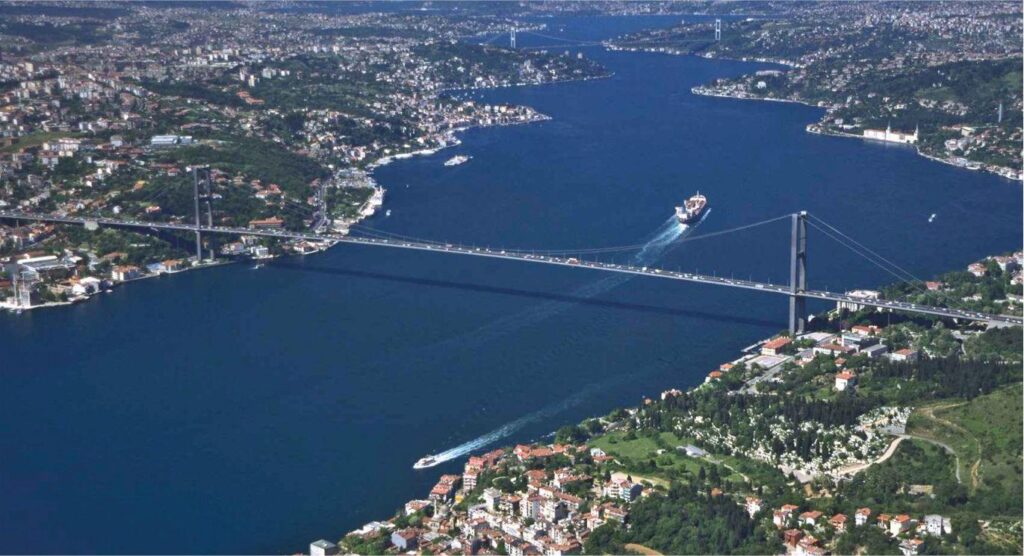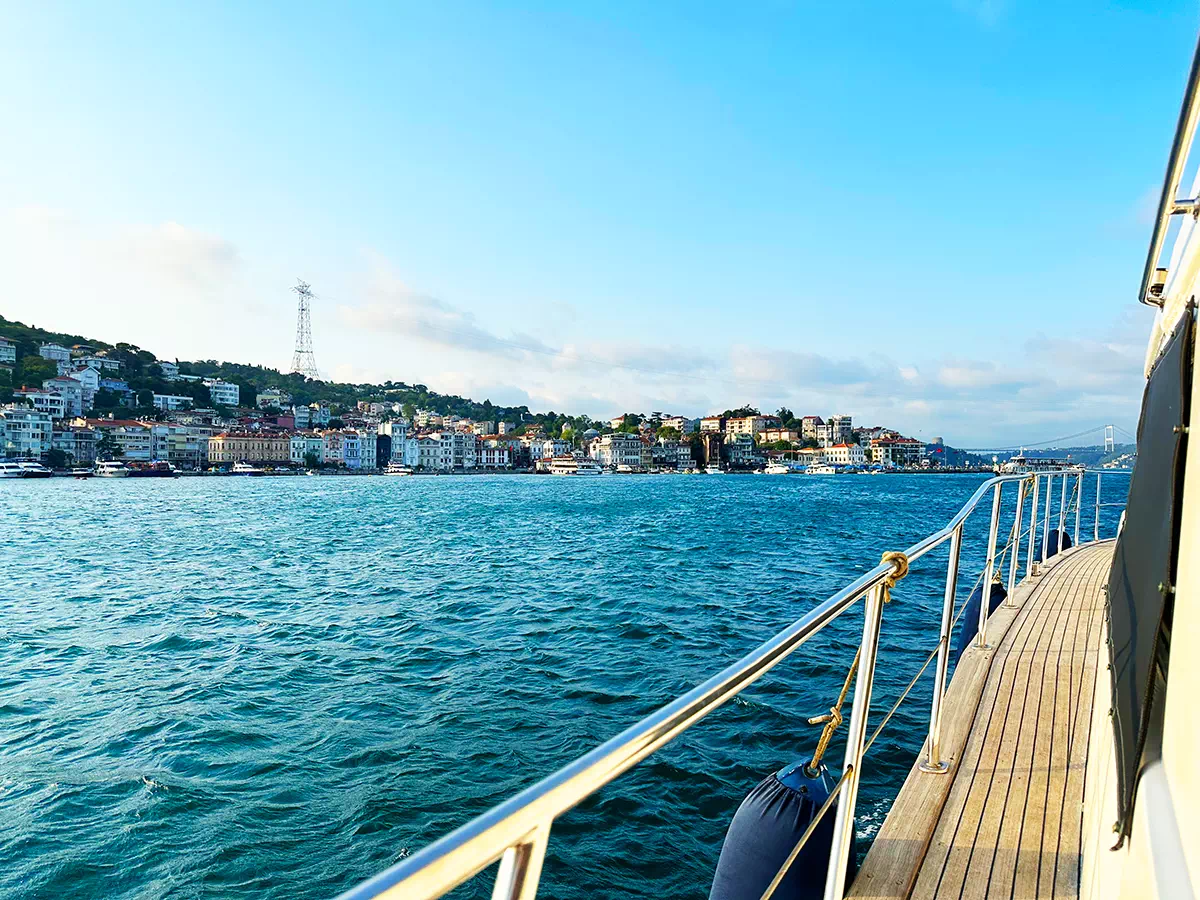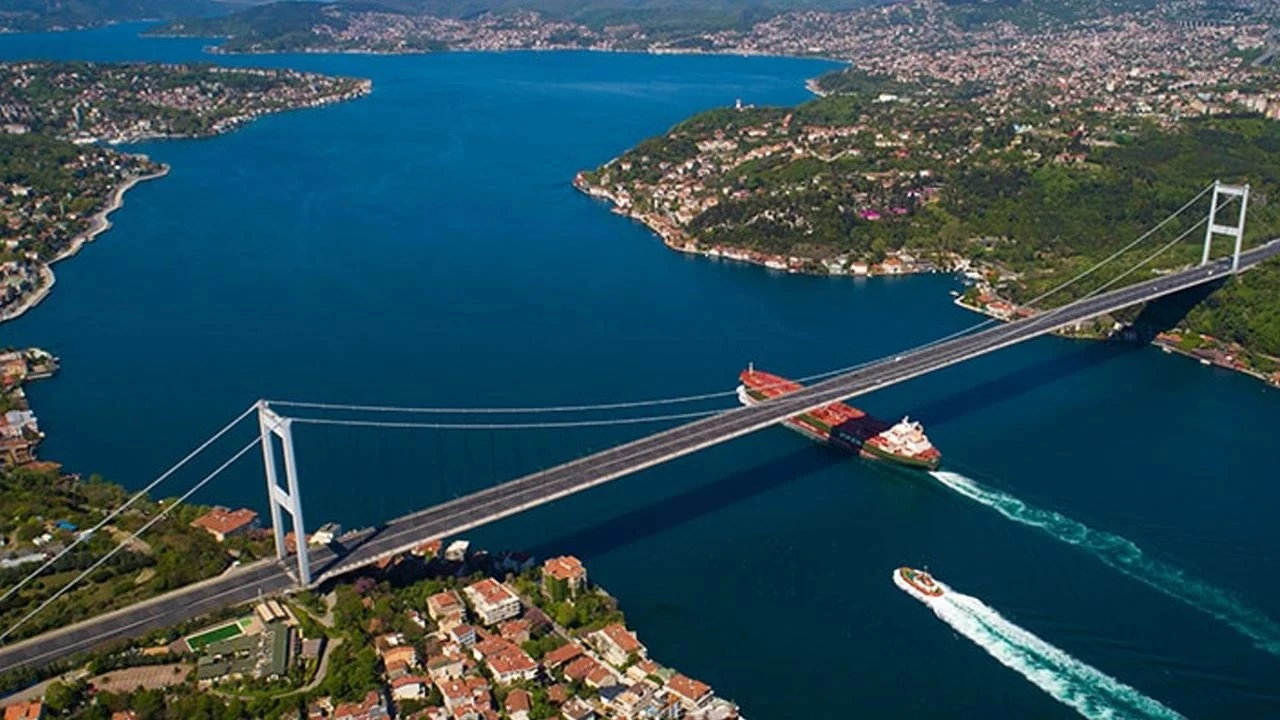
Introduction
The Bosphorus Strait, a narrow yet crucial waterway in Istanbul, has long served as a geopolitical fulcrum connecting Europe and Asia. Its control has dictated the rise and fall of empires, steered global trade patterns, and defined modern energy and military strategy. This comprehensive guide explores the strategic importance of the Bosphorus in history, focusing on its military utility, economic value, and diplomatic weight in the international system.
Strategic Importance of the Bosphorus
A Gateway Between Continents
The Bosphorus links the Black Sea to the Sea of Marmara, which in turn connects to the Aegean and Mediterranean Seas. This geographic position has granted Turkey a natural chokepoint over maritime passage between East and West, solidifying its strategic importance of the Bosphorus.
Core Functions:
- Maritime trade corridor
- Military deployment route
- Energy transport hub
- Diplomatic leverage zone
Its narrowest point measures just 700 meters, making it easily defensible but also congested, further elevating its importance.
Key Strategic Features
| Feature | Importance |
|---|---|
| Chokepoint status | Enables control over naval and trade passage |
| Intercontinental access | Connects Asia and Europe through Istanbul |
| NATO frontier | Key site for East-West military monitoring |
| Energy corridor | Transit path for Russian, Azeri oil & gas |
| Global trade artery | Critical for container and tanker traffic |
You can join our day cruise tour to get to know this magnificent strait more closely. The strategic waterways Istanbul offers are truly remarkable.
History of the Bosphorus Strait
From ancient Greek mythology to the Byzantine and Roman eras, the history of the Bosphorus Strait reveals its enduring relevance:
- Greek Era: Known as the path of Io, symbolizing divine control
- Roman Rule: Marked the imperial divide between East and West
- Byzantine Constantinople: The city’s natural defense and trade hub
- Crusades & Mongol movements: Strategic access route
This strait witnessed the evolution of Mediterranean naval power, with frequent sieges, blockades, and battles fought for its control.
Ottoman Control of the Bosphorus
The 1453 conquest of Constantinople by the Ottoman Empire reshaped Eurasian politics. By asserting Ottoman control Bosphorus, the Ottomans:
- Blocked European access to Asian trade
- Strengthened Islamic dominance in maritime routes
- Taxed all foreign naval traffic
Fortification and Administration
- Rumeli Hisari and Anadolu Hisari ensured cross-strait surveillance
- Strategic taxation of passing vessels became a major revenue source
- Naval shipyards along the Golden Horn secured maritime supremacy
Their control lasted over four centuries, reinforcing Istanbul’s stature as a geopolitical epicenter.
Geopolitical Significance of the Bosphorus
Montreux Convention and Global Tensions
The 1936 Montreux Convention governs the passage of naval ships through the Bosphorus, giving Turkey the right to restrict military access in times of war. This highlights the ongoing geopolitical significance Bosphorus holds in international relations.
Strategic Relevance Today:
- Russia uses it to access Syria and Mediterranean fleets
- NATO uses it to maintain Black Sea readiness
- EU supports its security to protect energy imports
| Actor | Interest in Bosphorus |
| Turkey | Sovereignty, NATO duty, trade security |
| Russia | Military routes, energy exports |
| NATO | Deterrence and intelligence operations |
| EU | Energy corridor and trade stability |
| China | Maritime Silk Road initiative node |
Bosphorus in International Trade
The Bosphorus handles more than 42,000 ship transits annually, making it one of the busiest and most dangerous straits worldwide. This clearly demonstrates the crucial role of the Bosphorus in international trade.
Economic and Logistical Role:
- Transports 3% of global oil supply
- Handles LNG, crude, refined products, grains, and chemicals
- Links Russia, Azerbaijan, Kazakhstan with Europe
To ensure safe and sustainable usage:
- Turkey uses Vessel Traffic Services (VTS)
- Implements double-hull ship policies
- Enforces navigation rules and speed restrictions
| Commodity | % of Trade Volume |
| Crude Oil | 30% |
| LNG | 15% |
| Containers | 25% |
| Bulk Cargo | 30% |
Military History of the Bosphorus
The Bosphorus has played a role in almost every major regional conflict, shaping the military history of the Bosphorus:
- Gallipoli Campaign (1915): A failed Allied attempt to breach the strait
- Cold War: Surveillance site and submarine tracking zone
- Modern Conflicts: Acts as naval mobilization base for Syria, Libya
Military Assets Deployed:
- Turkish Navy Headquarters in Istanbul
- Black Sea Command units
- Radar and satellite monitoring centers
These systems track both civilian shipping and foreign military vessels daily.
Strategic Waterways in Istanbul
Beyond the Bosphorus, Istanbul’s maritime importance is amplified by other strategic waterways Istanbul boasts:
- Golden Horn: Internal trade basin and harbor
- Sea of Marmara: Connects to Dardanelles and Aegean
- Canal Istanbul (planned): Backup waterway to reduce Bosphorus congestion
Supporting Infrastructure:
- Three intercontinental bridges and two tunnels
- Eurasia Tunnel for cars, Marmaray for rail
- Container terminals at Ambarlı and Haydarpaşa
Environmental and Political Challenges
As a narrow and overburdened strait, the Bosphorus faces:
- Marine pollution from ship discharges
- Ecosystem damage from dredging and canal projects
- Political debates over Montreux restrictions and Canal Istanbul
Turkey walks a delicate line between:
- Economic opportunity
- Environmental sustainability
- National security
Conclusion
The Bosphorus is not just a waterway; it’s a symbol of global power. Control over it means dominance in trade, energy, and defense. Historically contested, it remains vital in shaping alliances, economic policies, and maritime law, underscoring the enduring strategic importance Bosphorus holds.
Strategic Summary:
- Connects major global trade and military zones
- Controlled by Turkey under international law
- Used by Russia, NATO, China, and others
- Hosts one of the densest ship traffics in the world
- Faces environmental and political tension
Understanding its role helps policymakers, businesses, and citizens make sense of modern geopolitics and future maritime strategy.

